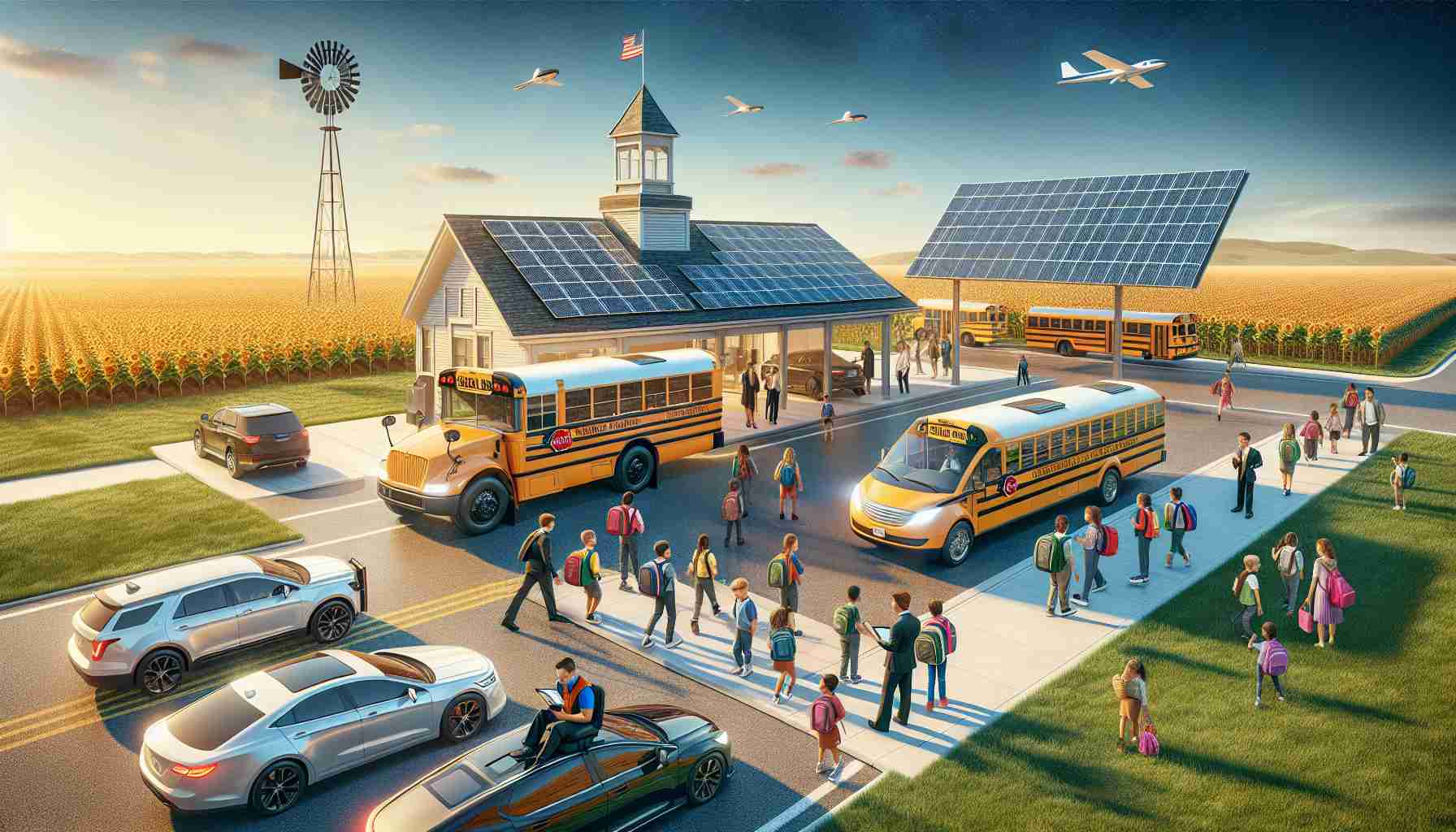Innovation Drives Illinois’ School Transportation Evolution
Illinois is taking a transformative leap into the future of school transportation, embarking on an ambitious endeavor to revolutionize its fleet with cutting-edge electric bus technology. With almost $20 million secured by the Illinois State Board of Education (ISBE), the state is poised to retire traditional combustion-engine school buses across nine districts, heralding a new era of eco-friendly travel.
Bridging Technology and Sustainability
This initiative, fueled by a $19.9 million grant from the U.S. Environmental Protection Agency, transcends mere bus replacement. It showcases a comprehensive approach to sustainable transit by not only acquiring 70 electric buses but also installing crucial charging infrastructure. This grants local school districts in areas like Forest Park and Joliet Township the unique opportunity to align themselves with groundbreaking changes while safeguarding their environment.
Towards a Smarter, Cleaner Future
The governor of Illinois, JB Pritzker, remarked on the significance of this funding, underlining its role in fostering cleaner, healthier environments for educational communities. The synchronized efforts of local and federal stakeholders are a testament to the critical interplay of policy and innovation that is essential for such transitions.
Expanding Horizons for Other Districts
Amidst the promise of a greener future, other districts are invited to embrace these innovations through the Clean School Bus Rebate Program, with an application window open until January 9. This program stands as a beacon for other states and districts inspired by Illinois’ trailblazing journey.
Illinois’ commitment to electric school buses sings the song of progress—cleaner air, reduced running costs, and technological advancement are merely the first verses of this overture towards a sustainable future in American transportation.
How Illinois is Leading the Charge in School Transportation with Electric Buses
Emerging Trends in School Transportation
As electric vehicles increasingly capture the transportation sector’s attention, Illinois is making headlines with its decisive pivot to electric school buses. With the electrification of school buses, Illinois sets an example that other states may soon follow, highlighting a significant trend in sustainable transportation that aligns with environmental objectives.
Specifications and Features of Electric Buses
The electric school buses featured in Illinois’ initiative boast cutting-edge specifications, including state-of-the-art battery technologies that offer a range suitable for daily school routes. These buses come equipped with modern features such as enhanced safety mechanisms, real-time GPS tracking, and improved comfort for passengers. Such specifications are designed not just for efficiency, but to provide a safer and more enjoyable ride for students.
Use Cases: Schools Benefiting from Electric Buses
Districts like Forest Park and Joliet Township are at the forefront of adopting electric buses. These areas benefit from reduced emissions and lower operational costs, making electric buses a financially appealing alternative as well as an environmentally responsible one. Schools enlisting in this program are not only diminishing their carbon footprint but are also striking a new balance between cost efficiency and modern technology.
Pros and Cons of Electric School Buses
Pros:
– Environmental Impact: Zero tailpipe emissions dramatically improve local air quality, benefiting students’ health.
– Cost Efficiency: Lower fuel and maintenance costs compared to diesel buses can lead to long-term savings.
– Noise Reduction: Electric buses operate with significantly less noise, reducing sound pollution in school environments.
Cons:
– Initial Investment: Higher upfront costs for purchasing electric buses and infrastructure.
– Charging Infrastructure: Installation and availability can pose challenges, requiring strategic planning.
– Range Limitations: Depending on the battery technology, some routes may be limited in distance.
Illinois as a Model for Sustainability in the U.S.
Illinois’ incentivization and infrastructural development serve as a model for other states considering similar transitions. By showcasing tangible benefits and addressing potential challenges, this initiative paves the way for widespread adoption across the country.
Predictions for the Future
As the infrastructure continues to expand and technology advances, it is anticipated that more districts in Illinois and beyond will transition to electric buses. This movement not only promises a reduction in greenhouse gas emissions but also signifies a broader shift towards eco-conscious transportation solutions in the education sector.
Conclusion
Illinois is getting ready not only for modern transportation solutions but also for future educational and environmental landscapes. By championing this initiative, the state is setting a precedent for other regions, fostering a vision of educational transport that is as forward-thinking as it is sustainable. For more information on the Illinois State Board of Education’s initiatives, visit their official website.


















